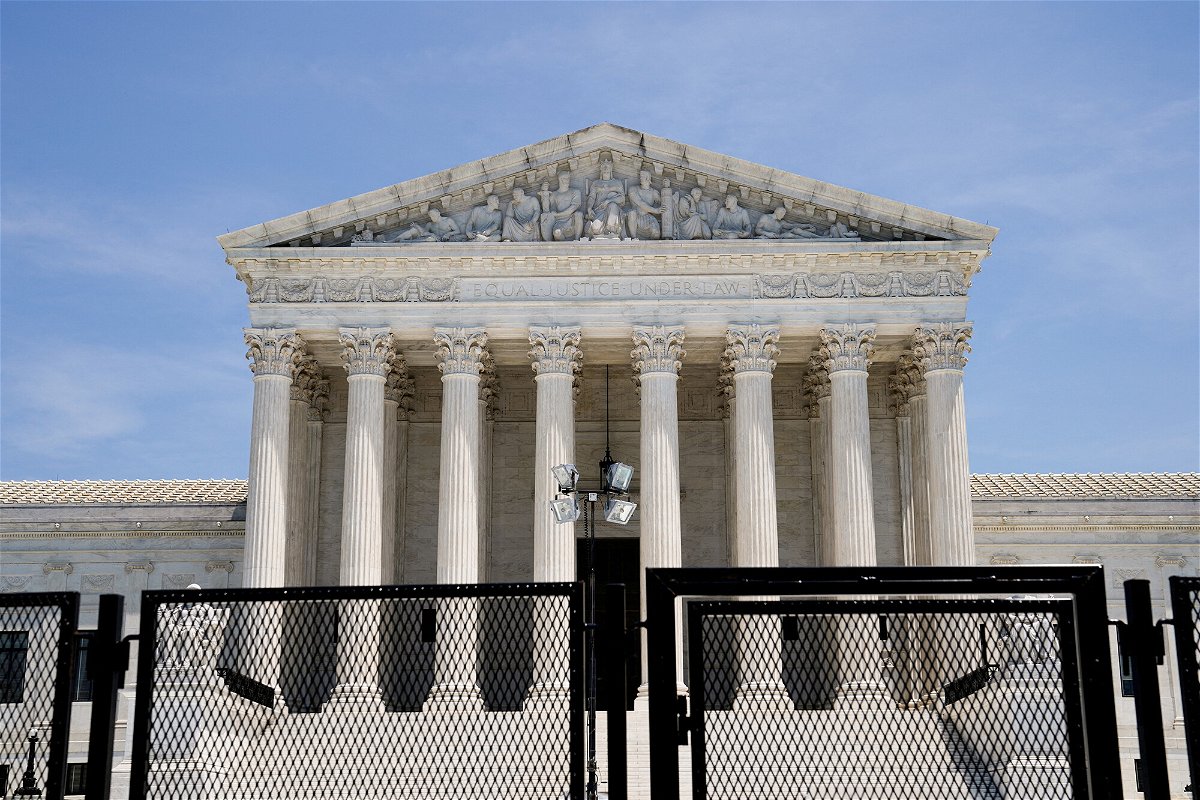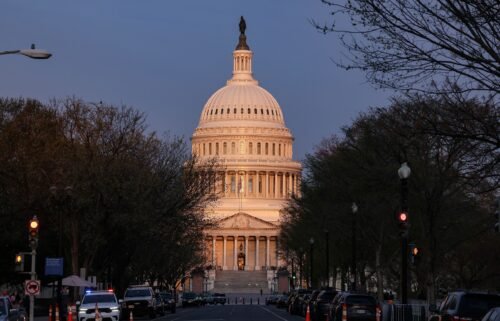Supreme Court allows Louisiana to use congressional map that lower court said likely violates Voting Rights Act

The Supreme Court
By Ariane de Vogue, CNN Supreme Court Reporter
The Supreme Court on Tuesday allowed a congressional map in Louisiana to remain in place for the next election, freezing a lower court ruling that said the map likely violates the Voting Rights Act by diluting the power of Black voters.
In a brief order, the court said that it would wait to act on the merits of the case until it has decided a similar dispute out of Alabama that is set to be argued next term. The three liberal justices, Stephen Breyer, Sonia Sotomayor and Elena Kagan, dissented.
The now-blocked map had passed in March after the GOP-controlled legislature overrode Democratic Gov. John Bel Edwards’ veto of the map. The map had retained Republicans’ advantage in five of the state’s six congressional districts, keeping the 2nd District — which stretches from Baton Rouge to New Orleans — the only majority Black district, and the only district to favor Democrats.
The Black population in Louisiana is 33%.
On June 6, Judge Shelly Dick of the US District Court for the Middle District of Louisiana ordered the Louisiana state legislature to add a second majority-Black district — citing the state’s “repugnant history” of discrimination.
“The evidence of Louisiana’s long and ongoing history of voting-related discrimination weighs heavily in favor of” arguments put forward by the Louisiana State conference of the NAACP and other challengers in the case, Dick said. A federal appeals court declined to put that ruling on hold and scheduled expedited hearings that are set to begin on July 8.
But Louisiana asked the high court to step in now even before those hearings could take place.
In asking the court to freeze the lower court opinion, Louisiana Attorney General Jeff Landry argued that the state’s congressional boundaries cannot be drawn to create two majority-black districts without “segregating the races for purposes of voting” in violation of court precedent.
Landry said that allowing the maps would toss the state “into divisive electoral pandemonium” by throwing the election process into chaos, creating confusion statewide and undermining the “confidence in the integrity of upcoming congressional elections.”
“It is impossible to draw a map without prioritizing race as the predominant factor in order to generate a second majority-minority district, which federal courts have cautioned Louisiana not to do in the past,” he told the justices in court papers.
Lawyers for the Louisiana state conference of the NAACP dismissed the notion that it was too close to the election to change the maps. In court papers they echoed Dick’s holding that “a remedial congressional plan can be implemented in advance of the 2022 election without excessive difficult or risk of voter confusion.”
In a separate dispute back in February, a 5-4 the Supreme Court allowed a congressional map drawn by Alabama Republicans to remain in place, putting a hold on a lower court ruling that blocked the map. The court will hear arguments in that case on October 4.
This story has been updated with additional details.
The-CNN-Wire
™ & © 2022 Cable News Network, Inc., a WarnerMedia Company. All rights reserved.
CNN’s Melissa DePalo contributed to this report.


